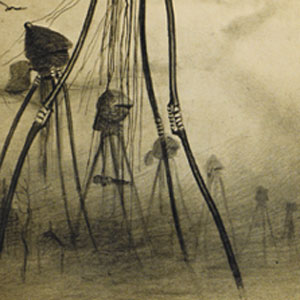Earlier this year, the London School of Economics sent out a press release announcing that its celebrated historian, Ramachandra Guha, had come to the conclusion that India has so much wrong with it that it will never become a global superpower. How provocative, you might think. In actual fact, if you live in India, you will constantly be warned that the country is a basket case, too poor, corrupt and undereducated to change. It’s impossible to travel far without meeting a terrible victim of poverty, and this makes the pessimists seem as cool as a sarcastic teenager next to a dad in a festive jumper. There are dozens, if not hundreds, of writers and academics who have turned pessimism about the developing world into a full-time job.
While it’s true that India has a lot holding it back, is it really fair to project pessimism so far into forever? Will the world always be dominated by the likes of the US, with no room for the likes of India? Always?
Taking a rosier, more optimistic, view may not be particularly trendy, but there are reasons to be cheerful. An example: in February, India passed a milestone in declaring itself no longer polio-endemic, thanks to an enormous programme of vaccination that has almost wiped out the disease across the nation. It was part of a huge international effort, drawing in billions of dollars of investment to make sure that 20 million volunteers immunised 2.5 billion children across all polio-endemic countries over 25 years. In India, a country with limited access to healthcare, it represented an organisational triumph amongst medical workers.
The pragmatic optimists have more to celebrate. Other international projects, to combat what seem like intractable problems, really are working. The Bill and Melinda Gates Foundation, for instance, has turned charity into such an effective vehicle for improving education and healthcare (including providing grants for the polio vaccination programme in India) that in 2007 the Indian President awarded it a national prize for peace and development.
And on the domestic front, in the last few years, new right to information legislation teamed with Internet campaigning has had considerable success in rooting out political corruption across India. Mobile phones have also brought a communications revolution to the poor. Science, technology and human ingenuity are driving progress across the developing world.
So why are the pessimists still underplaying the onward march of nations like India? They might say that their job is to make sure the world doesn’t become complacent, that they’re pushing us to improve instead of pretending things are better than they are. That’s a fair argument. And they may also be right that India will never become a global power, with a fair, safe democracy and equality between the rich and the poor. Indians may never experience all the benefits of wealthier nations. But they could just as easily be wrong. History doesn’t belong to the critics on the sidelines; it belongs to those who make a difference against the odds.

